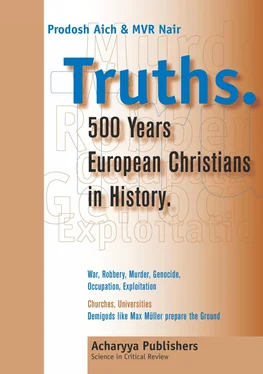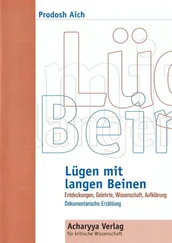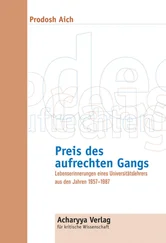First of all we must ascertain that “Zerbst in Anhalt” , to put it mildly, is absolutely wrong. Zerbst was an adjacent separate “province” in Prussia in the north of Anhalt-Dessau. Then: why at Zerbst and why not at Dessau? He does not explain. We look into his biographies. None of his later biographers takes note of this key-information in their writings. So, no one questions. And no questions, no answers. We won’t like to speculate. We raise this question and demand from the recent biographers of Max Müllera convincing answer. This is not the only question that arises in our mind. We shall take up the issue: “It was rather hard on me that I had to pass my examinations for admission to the University (Abiturienten-Examen) not at my school, but at Zerbst in Anhalt.” in a while in our next chapter.
Friedrich Maximiliandoes not try out his literary talent to become a celebrated poet. We do not know whether he has written poetries at all. Max Müllerdoes not present those poetries composed by Friedrich Maximilian. The same thing holds regarding his talent for music. Liking music and having exampled talent are two different things. We leave poetry and music at that. Max Müllercloses this chapter, “School-days at Leipzig” with a cute story (p. 109-111):
“A more ambitious journey I took in 1841 with a friend of mine, Baron von Hagedorn. He was a curious and somewhat mysterious character. He had been brought up by a great-aunt of mine, to whom he was entrusted as a baby. No one knew his parents, but they must have been rich, for he possessed a large fortune. He had a country place near Munich, and he spent the greater part of the year in travelling about and amusing himself. He had been brought up with my mother and other members of our family, and he took a very kind interest in me. ... Hagedorn, with all his love of mystery and occasional exaggeration, was certainly a good friend to me. He often gave me good advice, and was more of a father to me than a mere friend. He was a man of the world, and therefore his advice was not always what I wanted. He was also a great friend of my cousin who was married to a Prince of Dessau, and they had agreed among themselves that I should go to the Oriental Academy at Vienna, learn Oriental languages, and then enter the diplomatic service. As there were no children from the Prince’s marriage, I was to be adopted by him, and, as if the princely fortune was not enough to tempt me, I was told that even a wife had been chosen for me, and that I should have a new name and title, after being adopted by the Prince. To other young men this might have seemed irresistible. I at once said no. It seemed to interfere with my freedom, with my studies, with my ideal of a career in life; in fact, though everything was presented to me by my cousin as on a silver tray, I shook my head and remained true to my first love, Sanskrit and the rest. Hagedorn could not understand this; he thought a brilliant life preferable to the quiet life of a professor Not so I.”
This sentimental and tear-jerking story has obviously sold well. A lot has been written and fabricated on Max Müllerand around him. No one has yet commented this story on his “first love, Sanskrit and the rest” . We are unable to buy this story. We have read this story more than once. And we have checked facts and facts behind facts. We read this story once more in the light of careful reading facts:
“A more ambitious journey I took in 1841 with a friend of mine, Baron von Hagedorn.
(Baron von Hagedorn? Barons are generally not titled with “von”. Being a German, Max Müllershould have known this. That is not all. There is no mention of a “Baron Hagedorn” in reference books on nobles. A “ BaronHagedorn” has never existed. He is a creation of Max Müller. It is also remarkable that he has not disclosed the Christian (first) name of his “Hagedorn”.)
He was a curious and somewhat mysterious character. He had been brought up by a great-aunt of mine, to whom he was entrusted as a baby.
(“A great-aunt of Friedrich Maximilian”? From his father’s side? Well! There is nothing on record in the archives. We let it be without a comment. We know this lineage pretty good.
Who could be from his mother’s side? We recall. Adelheid’s grandfather was J ohann Bernard Basedow,son of a barber/wigmaker in Hamburg. Nothing is handed down on his wife or on her parental family in the archives .J ohann Bernard Basedow’s son, Ludwig Basedow,became Ludwig vonBasedow in 1833. He did not have a sister. He had two sons, one daughter, Adelheid. The elder son succeeded his father as the administrator in the Duchy Dessau-Anhalt. He was not significant enough to be recorded in the annals. His first (Christian) name is not known. The younger son, Carl von Basedowis recorded in the annals of Medicine with the term Basedow’s disease in continental Europe, which otherwise seems to be known as Graves’ disease. Who could have been a great-aunt of Friedrich Maximilian? Then, by whom could she be entrusted to bring up an unknown baby later becoming “Baron Hagedorn”? On top of it, as already indicated, a “Baron Hagedorn” is not on any genealogical record. Internet search machines will refer to Max Müller’s autobiography only.)
No one knew his parents, but they must have been rich, for he possessed a large fortune.
(Even if we accepted that no one knew the parents of the baby and this “baby” possessed a large fortune, yet the question will have to be answered, how this baby should become a Baron.)
He had a country place near Munich, and he spent the greater part of the year in travelling about and amusing himself. He had been brought up with my mother and other members of our family, and he took a very kind interest in me. ... Hagedorn, with all his love of mystery and occasional exaggeration, was certainly a good friend to me. He often gave me good advice, and was more of a father to me than a mere friend. He was a man of the world, and therefore his advice was not always what I wanted.
(This part of the story does not need any commentary in our context.)
He was also a great friend of my cousin who was married to a Prince of Dessau, and they had agreed among themselves that I should go to the Oriental Academy at Vienna, learn Oriental languages, and then enter the diplomatic service. As there were no children from the Prince’s marriage, I was to be adopted by him, and, as if the princely fortune was not enough to tempt me, I was told that even a wife had been chosen for me, and that I should have a new name and title, after being adopted by the Prince.
We keep aside the lineage of his father. We remember, Wilhelm Müllerwas the sixth child of seven children of Christian Leopoldand of Marie Leopoldine Müller. They lost all other children before Wilhelm Müllerwas three years old. Nothing else of this lineage is on records. Who could have been the cousinof of Friedrich Maximilian?
Carl von Basedowhad daughters, but none of them was married to a “Prince of Dessau”.
On top of it, there had never been a “Prince of Dessau”. Leopold I, was a German prince of the House of Ascania and ruler of the principality of Anhalt-Dessau from 1693 to 1747. Leopold II Maximilianwas a German prince of the House of Ascania and ruler of the principality of Anhalt-Dessau from 1747 to 1751. Leopold III Frederick Franz, Duke of Anhalt-Dessau, known as "Prince Franz", was a German prince of the House of Ascania. From 1751 until 1807, he was Reigning prince of the Principality of Anhalt-Dessau and in 1807, he became the first Duke of the Duchy of Anhalt-Dessau. Leopold IV Frederick, Duke of Anhalt was a German prince of the House of Ascania. From 1817 until 1853 he was ruler of the duchy of Anhalt-Dessau and from 1847 until 1853 also ruler of the duchy of Anhalt-Köthen. From 1853 until 1863 he was the ruler of the joined duchy of Anhalt-Dessau-Köthen and from 1863 the first ruler of the united duchy of Anhalt. All of them were married to nobles and had children.
Читать дальше












